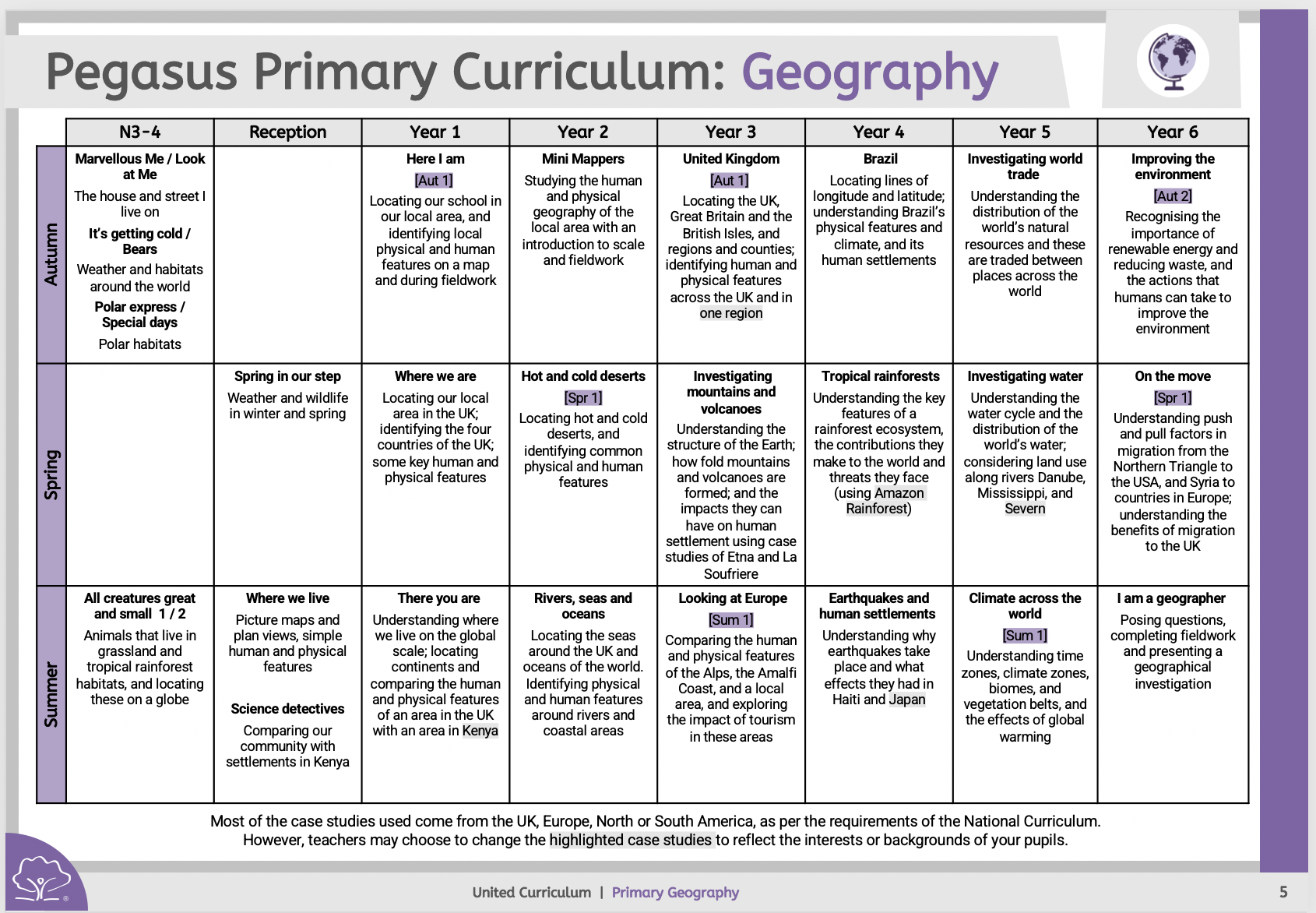Intent:
At Pegasus the geography curriculum will lay the foundations of knowledge and understanding to ensure that children become tolerant, confident and caring global citizens. We aim to inspire curiosity and fascination with the world around us and the world beyond our current experience. Children will develop a sense of identity based on their knowledge of the world and their place within it.
Our geography curriculum provides all children, regardless of their background, with:
- Relevant and coherent substantive knowledge of the world that is built gradually using subject-specific pedagogy from EYFS to Year 6 and beyond.
- Substantive knowledge is selected to build pupils’ understanding of three geographical vertical concepts:
Location and place
The location of the world’s continents, countries and places, and the key physical and human characteristics of each.
Geographical scale
Considering the local, national and global scale and understanding how causes and effects occur at all scales.
Interconnections
How are the human and physical worlds connected? How are different locations connected at different scales?
- A balanced view of the countries of the world, to address misconceptions and negative stereotypes.
- Explicit teaching of core disciplinary knowledge, and the ability to approach challenging, geographically-valid questions. Geographical enquiry skills have been sequenced across the year groups and, where appropriate, review and build on relevant knowledge that is first taught in mathematics or science, such as interpreting line graphs or setting hypotheses.
- Opportunities to undertake fieldwork, outside the classroom and virtually. Fieldwork is purposeful, and either gives pupils the opportunity to explicitly practise relevant disciplinary knowledge or to reinforce substantive knowledge.
Implementation:
As part of the planning process, teachers need to plan the following:
- A knowledge organiser which outlines knowledge (including vocabulary) all children must master and apply in lessons
- A cycle of lessons for each subject, which carefully plans for progression and depth concentrating on the geographical skills suited to the age group
- Low stakes quizzes which are used regularly to support learners’ ability to retrieve and recall knowledge and increase space in the working memory
- Challenge questions for pupils to apply their learning in a philosophical/open manner
- Trips and visiting experts who will enhance the learning experience
Impact:
Our Geography curriculum is well thought out and is planned to demonstrate progression. If children are keeping up with the curriculum, they are thought to be making good or better progress. The impact of our pupils learning in Geography can be measured in many ways:
- Formative assessment in each lesson enables teachers to reflect on whether the intended outcome has been met or whether any additional lessons or adaptations to future planning are needed.
- A post-learning quiz is provided for every unit. These questions aim to assess whether pupils have learned the core knowledge for that unit. The results of these quizzes will enable teachers to fill gaps and address misconceptions before moving on.
- Discussions with pupils about their Geography topic as well as learning in their books allows us to assess how much curriculum content is secure. These conversations are used most effectively to determine whether pupils are knowing more and remembering more.
